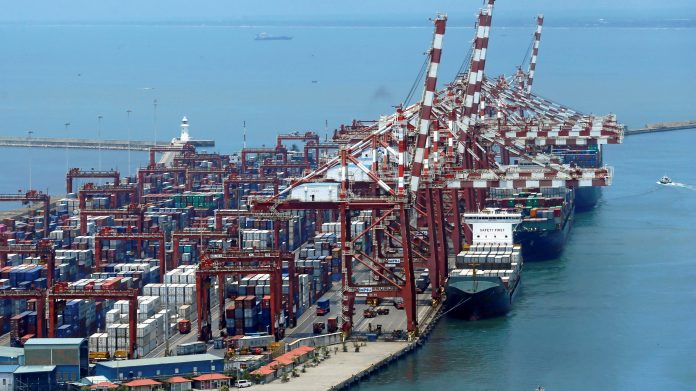Cash strapped Government’s ill-planned import ban introducing a licence scheme for importers to protect Sri Lankan foreign reserves is negatively impacting the economy, commodity importers association complained..
Sri Lanka requires import licenses for more than 400 items at the six-digit level of the Harmonized Tariff Schedule to restrict non essential imports into the country.
Approval of these licences is at the discretion of the regulators; no standard practices are followed, and requirements can vary.
Regulators entrusted with evaluating products to be imported often lack the capacity to make scientific determinations, and a zero-risk policy is followed in lieu of scientific rationale.
Import of telecommunication equipment requires approval from the Telecommunications Regulatory Authority and a license issued by the import controller. Some items which are under Import Control License (ICL) are temporarily banned under the April 2020 import restrictions.
The government has introduced a licencing system to traders who imported goods and for the issue of direct user licenses for essential commodity import for the disbursement of forex subject to the overall direction of the Finance Ministry and Controller of Imports and Exports, a Finance Ministry official said.
The amount of exchange on each import control licence was totally inadequate to meet the demand of essential commodities at present and therefore it will be very difficult to issue new permits for non essential items as stipulated by the Finance Ministry at present, he explained.
This will create shortage of practically every essential item; the shortage will also lead to the non-availability of food items for tourists and other essentials.
He added that this latest decision of the government will hit the tourism industry which is on the verge of recovering from the COVID -19 pandemic set back.
With the scarcity of forex, the Government resorted to seek Indian lines of credit but aid for commodity imports was not forthcoming he disclosed adding that in one instance aid was given, on an Indian Line of credit, for the import of fuel only.
Sri Lanka is facing a shortage of essential commodities such as rice, sugar, dhall, chickpeas, coriander etc as imported stocks are stuck in the Port of Colombo (as far back as November 2021), not being able to clear it in the current foreign exchange crisis, commodity importers complained.
They noted that port rent and container demurrages are accumulating on a daily basis (in some instances the cost per kg was Rs. 35-40), they pointed out.
Members of the Essential Food Commodities Importers and Traders Association have also imported and distributed food items such as dhall and rice on “Suppliers Credit” (DA terms) which are overdue for settlement and some suppliers are requesting payment.
This issue has been brought to the notice of the President in a letter dated March 1, 2022, P.M. Abeysekera, Consultant of Essential Food Commodities Importers and Traders Association told the Business Times.
He added that there was a serious threat for food security in the country as most suppliers are reluctant to ship goods to Sri Lanka unless paid in advance.
As the Sinhala and Tamil New Year is fast approaching, the association has urged the President to intervene in this matter of clearing these food items from the port to avoid price hike due to short supply.
The Central Bank has told banks not to request dollars from the banking regulator’s depleted foreign currency reserves, and instead find it in the cash-short market as the country faces a major scarcity of dollars in the forex market.
This has resulted in several private banks being unable to open Letters of Credit (LCs) to importers even for essential items such as pharmaceutical products.
According to a Central Bank directive, commercial banks dealing in the inter-bank foreign exchange market have been restricted in maintaining foreign currency reserves and managing foreign exchange liquidity within the banking system.
This has created a shortage of dollars in the country for transactions involving individual or institutional customers, Finance Ministry sources confirmed.
This situation has worsened unexpectedly due to the devaluation of the rupee, a leading importer said, adding that though importers are willing to buy at higher rates, dealers are reluctant to place orders.
Sri Lanka importers have been badly hit by a foreign currency scarcity as the banks are now refusing to open Letters of Credit even for the importation of essential commodities; Mr. Abeysekera said adding that the Central Bank should take the responsibility for this situation.
